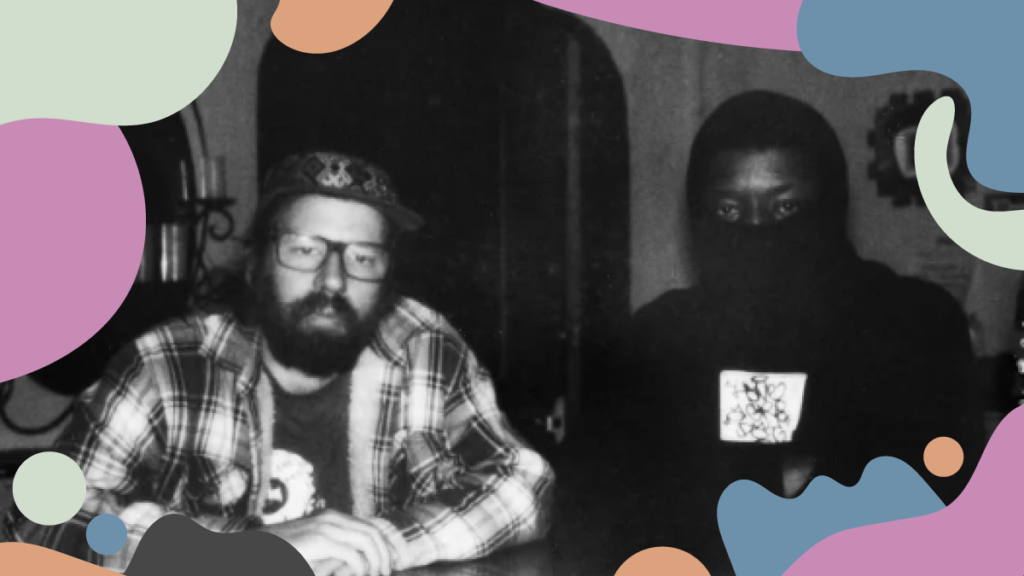Billy woods is one of a handful of underground rappers who, to many, won’t require any introduction. Over the last few years, woods has come to be known as one of the best living rappers, now being celebrated after more than a decade of relatively quiet praise for his other work. Following an incredible 2022, during which he released Aethiopes and Church, he reunited with frequent abstract hip-hop producer Kenny Segal to create another impressive rap album, Hiding Place’s new follow-up of sorts, Maps. Their talents come together beautifully with complementary abstract approaches and their own distinctive stylistic traits.
Hiding Places’ production was inspired by punk and rock, with both genres also bringing their influence to woods’ fiery, angry lyricism. Tracks like “Spongebob” (especially on its hook) and “Speak Gently” highlight this most clearly. Hiding Places was an album full of anger, but Maps is notably softer. Where the former speaks of themes from the Rwandan Genocide to the death of Saddam Hussein, Maps is (at least slightly) gentler. Instead of a dark, pessimistic view of the world as a whole, Maps expresses some semblance of hope for the future.
This is seen on “Year Zero,” one of the strongest tracks on the album. Woods explains that the next generation “are gonna have to start again,” putting faith in them to fix what he sees as a ruined world. This sentiment becomes beautiful rather than bleak in the final verse of the album, as woods details watching his son and becoming existential about the future: “Anything at all could happen to him (…) tear-streaked apologies, balled fists/it’s a trip that this is something we did (…) I watch him grow, wondering how long I got to live.” These lyrics show a hope that hasn’t been seen previously in woods’ work, one for the future generations to solve the problems created throughout history. Segal’s work on tracks like “Soft Landing” and “The Layover” are also lighter in their sound. The former’s gentle and plucky acoustic backing sounds like it belongs behind an alternative singer, and the latter’s gorgeous piano loop is simple but catchy.
This slight optimism isn’t to suggest that Maps is a light record, though. Segal’s sound is (generally) less oppressive than on Hiding Places, but the boat-horn sound on “Hangman’” is genuinely frightening and the glitchy sounds and extremely harsh 808s on “Kenwood Speakers” are still crushing. Maps isn’t a sudden shift in woods’ style, but it shows further maturation in his lyricism. His nuanced worldview continues to reveal itself. Segal’s work is varied and bold, seeing him move stylistically from jazz-rap beats (“Blue Smoke” is a mind-blowing jazz beat, as is woods’ ability to flow on top of it – the song is reminiscent of Kendrick Lamar’s “For Free? (Interlude)”) to a similar rock feel as seen on Hiding Places.
Maps also sees woods get more personal than ever before in his work. Considering that he keeps his face hidden in pictures and speaks very little about his personal life, woods is intimate and revealing on this album. He speaks of struggling to maintain a positive relationship with his ex-wife/ex-girlfriend during his tours, of loneliness and feelings of disconnection from the world and of his (potential) son in detail. This is the largest departure from his usual work, as his typical political focus is put to the side on some tracks.
Woods’ towering talent as a lyricist is most likely the main point of interest for people coming to Maps, but Segal’s production is immaculate, too. Woods is a rapper with enough talent to be able to seamlessly reference Future’s I Never Liked You and Dien Bien Phu (a battle between Vietnam and its French colonists in 1954) within the same verse. Segal’s atmospheric backing tracks give his words more power and build a beautiful, grimy atmosphere for the record. Their collaboration lifts both of their work to new levels.





